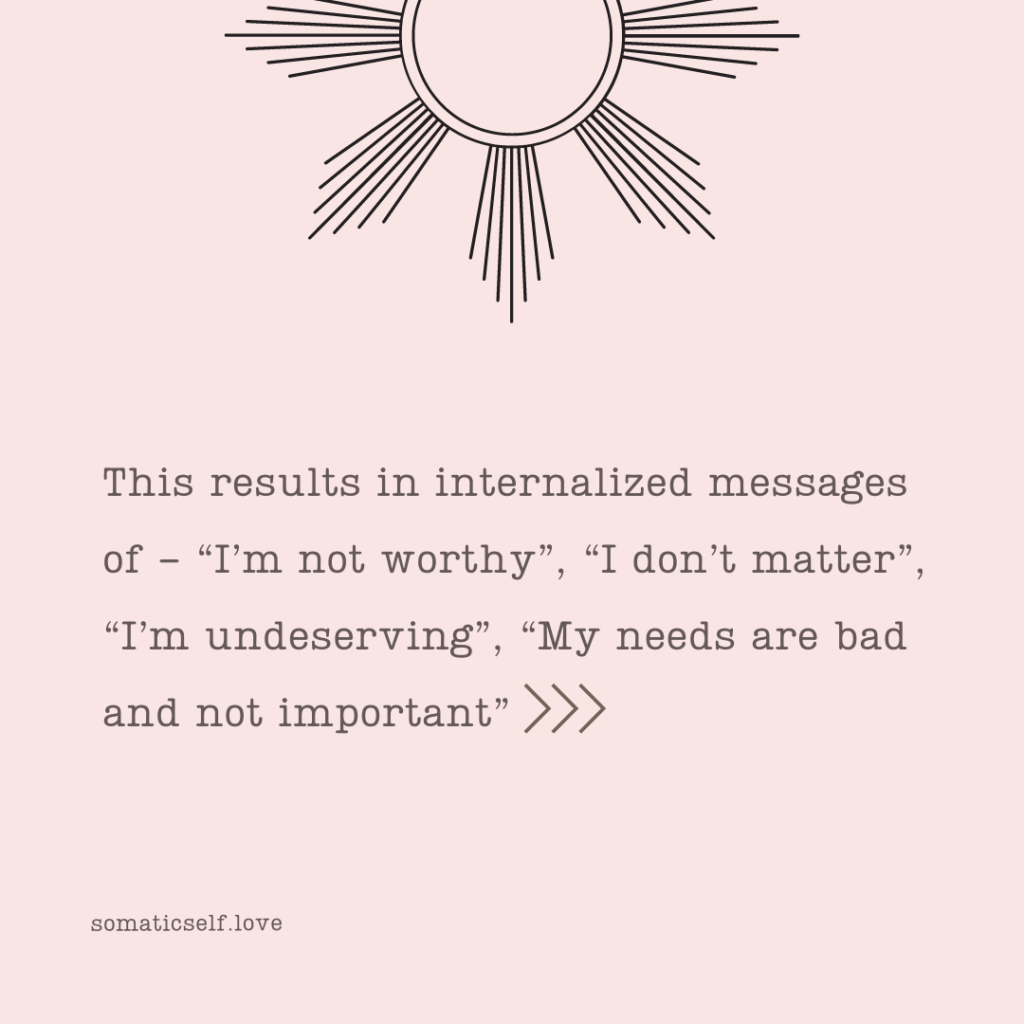Why Is It So Hard to Love Myself?

As I continue to write and talk about Somatic Self-Love, many people have asked the question, “why is it so hard to love myself?” They go onto say, “you talk about the felt-sense of self-love… feeling love for myself as a sensation in my body… I don’t even know what that means. I’m pretty sure I don’t even know what love feels like, period.”
There are many reasons why it is challenging to feel love for ourselves.
Self-love is a term that is often thrown around in popular culture, but what does it really mean to love oneself? For many people, the concept of self-love is elusive and hard to grasp. Why is it so challenging to feel love for ourselves, even when we know that it’s important for our well-being?
One of the answers lies in our early experiences of being attended to by our caregivers. Children with supportive caregivers who consistently attend to their physical and emotional needs develop a capacity to articulate their needs and see themselves as worthy of care. In contrast, children with caregivers who are abusive, neglectful, or inconsistent tend to see themselves as “bad” for having needs, unworthy of care, and others as untrustworthy.
















This experience is called interpersonal trauma, where the other’s needs are met at the expense of our own needs. It results in internalized messages of “I’m not worthy,” “I don’t matter,” “I’m undeserving,” and “My needs are bad and not important.” In some cases, the articulation of our needs results in abuse, terrorization, isolation, and/or abandonment.
As a result, we are often left with a longing for care and connection, as well as anger and grief for having to do for ourselves what wasn’t done for us as children. Now we have an ambivalent relationship with our somatic, emotional, and relational needs, which leads to an internal dilemma around engaging in self-care and self-love. We feel bad for having needs, are angry that they never got met, and don’t trust ourselves or others to meet us in relationship.
This experience leads children to adapt wisely by distancing/disconnecting from their basic needs. It’s a survival strategy to protect ourselves when it was not safe to have or articulate our needs. Over time, this adaptive strategy results in a nourishment barrier: a limited ability to let in nourishment such as safety, trust, love, comfort, self-care, and self-love.
This creates body loops of shame, resistance, fear, and mistrust of giving and receiving love, stating our needs, and receiving nourishment as adults. It results in isolation, pain, loneliness, avoidance of pleasure, and addictions as substitutes for internal love, relationship, exchange, and nourishment as adults.
The bad news is that we can’t change the past. The good news is that we can alchemize this stuck energy in our bodies (trauma) and change our relationship with ourselves and others. We can learn that it is safe to give and receive love.
Somatic Self-Love Ritual to Begin to Feel Self-Love Alive in The Body
- Find a quiet and comfortable space where you won’t be interrupted.
- Close your eyes and take a few deep breaths, allowing your body to relax and release tension.
- Place your hands on your heart and take a few moments to connect with your body and your breath.
- As you breathe, imagine a warm and loving energy filling your body, starting from your heart and spreading to the rest of your body.
- Repeat the following affirmations to yourself: “I am worthy of love and care,” “My needs are important and deserve attention,” “I am deserving of safety, trust, and nourishment.”
- Take a few moments to notice any sensations in your body and any emotions that arise.
- If you notice any resistance or discomfort, breathe into it and remind yourself that it’s okay to feel this way. You are safe and loved.
- When you feel ready, slowly open your eyes and take a few moments to ground yourself before continuing with your day.
Remember, somatic self-love is a practice. It’s something that we cultivate and nurture over time. With patience, compassion, and self-awareness, we can begin to dismantle the nourishment barrier and open ourselves up to the love and care that we deserve.